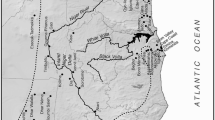Abstract
There is no one description that categorically explains the socio-economic and spatial attributes of Southern African cities. This stems from the fact that Southern African cities are a mixed bag of diverse and dynamic forces that contributed immensely to their formation. These forces which range from social, economic, political and spatial forces have evolved over time and in the process, formed defined features of modern-day cities. It would be a misnomer to skip the reality that the colonial-apartheid epochs were indeed influential in the formation and sustenance of structural systems which have defied time and still maintain a lasting memory of yester-year. While the blue-prints of the Germans, British and Portuguese are still visible in countries like Namibia, Zimbabwe and Mozambique, it is the exclusive nature of these cities that still stand defiantly despite multiple intervention by various governments to eradicate them. In South Africa, the apartheid system’s impact and its recurring impact of spatial inequality still evoke memories of negativity. It is from this perspective that this chapter intends to provide an overview of these African cities in order to illustrate how spatial inequality especially the creation of the “European city” (as O’Connor classifies them) greatly contributed to exclusivity in cities of southern Africa.
Access this chapter
Tax calculation will be finalised at checkout
Purchases are for personal use only
Similar content being viewed by others
References
Beall J, Crankshaw O, Parnell S (2002) Uniting a divided city: Governance and social exclusion in Johannesburg. Earthscan, London
Bell D, Jayne M (2006) Small cities: Urban experience beyond the metropolis. Routledge.
Berrisford S, McAuslan P (2017) Reforming Urban laws in Africa, global land tool network, Urban LandMark, UN-Habitat & Cities Alliance
Burdett R, Sudjic D (eds) (2007) The endless city. The urban age project by the London school of economics and Deutsche Bank’s Alfred herrhausen society. Phaidon Press, London
Collier P, Venables A (2017) Urbanisation in developing economies. Oxford Rev Econ Policy 33(3):355–372
Harrison P (2006) On the edge of reason: planning and urban futures in Africa. Urban Stud 43(2):319–335
Huchzermeyer M (2014a) Humanism, creativity and rights: invoking Henri Lefebvre’s right to the city in the tension presented by informal settlements in South Africa today. Transformation 85 (2014). ISSN 0258–7696
Huchzermeyer M (2014b) Invoking Lefebvre’s ‘right to the city’in South Africa today: a response to Walsh. City 18(1):41–49
Huchzermeyer M (2017) Informal settlements and shantytowns as differential space, Chapter XX, p3, Routledge Handbook of Henri Lefebvre, the city and urban society. Routledge, London
International Rescue Committee (2017) The right to the city for urban displaced
McMillan M, Pandolfi S, Salinger BL (1999) Promoting foreign direct investment in labor-intensive, manufacturing exports in developing countries. Consul Assistance Econ Reform II Discuss Pap (42)
Pieterse E. (2005). Alternative futures of the South African City. Digest of South African Architecture, 2004/2005. Feature Article, pp 52–53
Turok I (2012a) Urbanisation and development in South Africa: Economic imperatives, spatial distortions and strategic responses. International Institute for Environment and Development, London
Turok I (2012b) Urbanisation and development in South Africa: Economic imperatives, spatial distortions and strategic responses. Human Settlements Group, International Institute for Environment
UN-Habitat (2010) Urban divide: unequal cities. press release. UNHabitat, Nairobi
United Nations Human Settlement Programme (UN-Habitat) (2014) The state of African cities, 2014: Re-imagining sustainable urban transitions; UN-Habitat, Nairobi, Kenya
United Nations; Department of Economic and Social Affairs (UN DESA); Population Division (2018) World urbanization prospects: The 2018 revision. United Nations, New York. Available online: https://esa.un.org/unpd/wup/Publications
Author information
Authors and Affiliations
Corresponding author
Editor information
Editors and Affiliations
Rights and permissions
Copyright information
© 2021 The Author(s), under exclusive license to Springer Nature Switzerland AG
About this chapter
Cite this chapter
Magidimisha-Chipungu, H.H., Chipungu, L. (2021). Southern African Cities at a Glance—An Introduction. In: Magidimisha-Chipungu, H.H., Chipungu, L. (eds) Urban Inclusivity in Southern Africa. The Urban Book Series. Springer, Cham. https://doi.org/10.1007/978-3-030-81511-0_2
Download citation
DOI: https://doi.org/10.1007/978-3-030-81511-0_2
Published:
Publisher Name: Springer, Cham
Print ISBN: 978-3-030-81510-3
Online ISBN: 978-3-030-81511-0
eBook Packages: Social SciencesSocial Sciences (R0)




